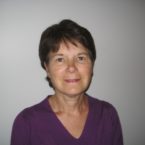Abstract
Universal newborn hearing screening has resulted in early identification of hearing loss including a substantial number of children with mild bilateral or unilateral hearing loss. Research suggests there is considerable uncertainty about the benefits of amplification for these children. The purpose of this study was to explore audiologists’ amplification decisions for children with minimal hearing loss. We conducted a cross-sectional survey of Canadian audiologists. Participants completed a questionnaire that included 6 typical clinical scenarios (4 mild bilateral, 2 unilateral), drawn from a pediatric audiology clinic. The survey elicited audiologists’ decisions about amplification. We also examined the relationship between amplification decisions and audiologists’ experience, percentage of children serviced, and work setting. Questionnaires were received from 64 audiologists. For 3 scenarios, the majority of respondents (> 93%) indicated they would provide amplification. However, responses varied for the 3 other scenarios with 15.6% to 64.5% recommending no amplification. Decisions were not related to experience (< 10 versus > 10 years). However, audiologists servicing a larger pediatric clientele (< 50% versus >50%) were less likely to recommend amplification for two scenarios, (mild unilateral, p = .032; bilateral high frequency, p = .013). Audiologists in hospitals/public agencies were less likely than those in private settings to provide amplification in two scenarios (mild bilateral high frequency, p = .047; mild bilateral, p =.009). There was also considerable variation in types of amplification (e.g., hearing aids, hearing aids and FM systems, FM systems only) recommended. In conclusion, most audiologists preferred to recommend amplification for children with mild bilateral or unilateral hearing loss. However, there were considerable differences when bilateral or unilateral thresholds were very mild. Further research is required to understand practice variations and to develop evidence-based guidance for managing these children.
Researchers
-
Elizabeth Fitzpatrick
Senior Scientist, CHEO Research Institute

